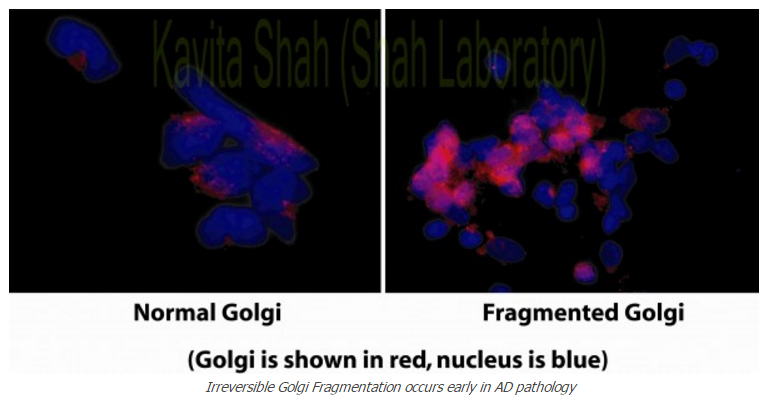Welcome to the Shah Laboratory
Drug Discovery in Cancer and Alzheimer's Disease Using Chemical Biology
Cdk5 and Golgi Fragmentation in Alzheimer’s Disease (AD)

Golgi is irreversibly fragmented in many neurodegenerative diseases including AD, Parkinson’s disease (PD) and amyotropic lateral sclerosis. Golgi fragmentation in PD occurs before the aggregation of fibrillar mutant alpha-synuclein. In AD, Golgi fragmentation and mitochondrial dysfunction coexist in neurons that lack neurofibrillary tangles (NFT), suggesting that these events occur early in the disease. Thus, it is believed that Golgi fragmentation in neurodegeneration is not a consequence of apoptosis. Instead it acts as an early and irreversible trigger for apoptosis. Our study revealed that deregulated Cdk5 causes Golgi fragmentation in primary neurons by directly phosphorylating cis-Golgi matrix protein (GM130) at Ser25. Since both Golgi fragmentation and Cdk5 deregulation are early events in AD pathology, this study uncovered a mechanism by which Cdk5 may cause Golgi fragmentation upon deregulation in AD brains.